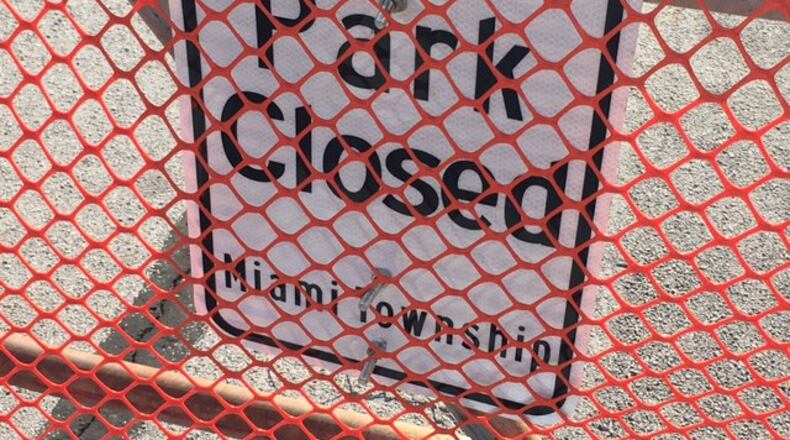“We’re thinking March or April” for the soil removal to start, said Steve Wolfe of the federal EPA. “600 trucks is a lot of trucks for that area.”
The park jointly owned by the township and Montgomery County never reopened last spring after high levels of lead – in some cases 60 times acceptable levels – were detected by the Ohio EPA.
The state agency also tested soil samples on about 25 private properties nearby and elevated lead levels in the yard of only one neighboring home.
More than 6,700 tons of contaminated soil will be removed next spring in what is expected to be a four-month project. About one-third of the Cordell Drive park and an adjacent home are contaminated and soil of up to two-feet deep will be removed, EPA documents show.
The EPA earlier projected an estimated cost of $2.5 million, but documents now indicate $3,124,184 has been approved for the project.
The vast majority of the contaminated portion – 2.25 acres on the eastern side that is more wooded - is county property. Only 0.25 acres on the western side – the township portion to that includes a baseball diamond - is affected by the cleanup, according to the EPA.
Layer Park never reopened this year after Ohio EPA soil samples taken in the winter showed elevated lead levels - levels that were initially apparent in 2013 tests but ignored, an Ohio EPA official said. In early April, the site was cordoned off. The U.S. EPA took over the project in early April, shortly after warning signs were posted at the park.
Michael Proffitt, acting chief of the Ohio EPA’s division of environmental response and revitalization, sought federal aid after he said the state agency “screwed up” in overlooking “obviously elevated” lead levels.
About the Author

